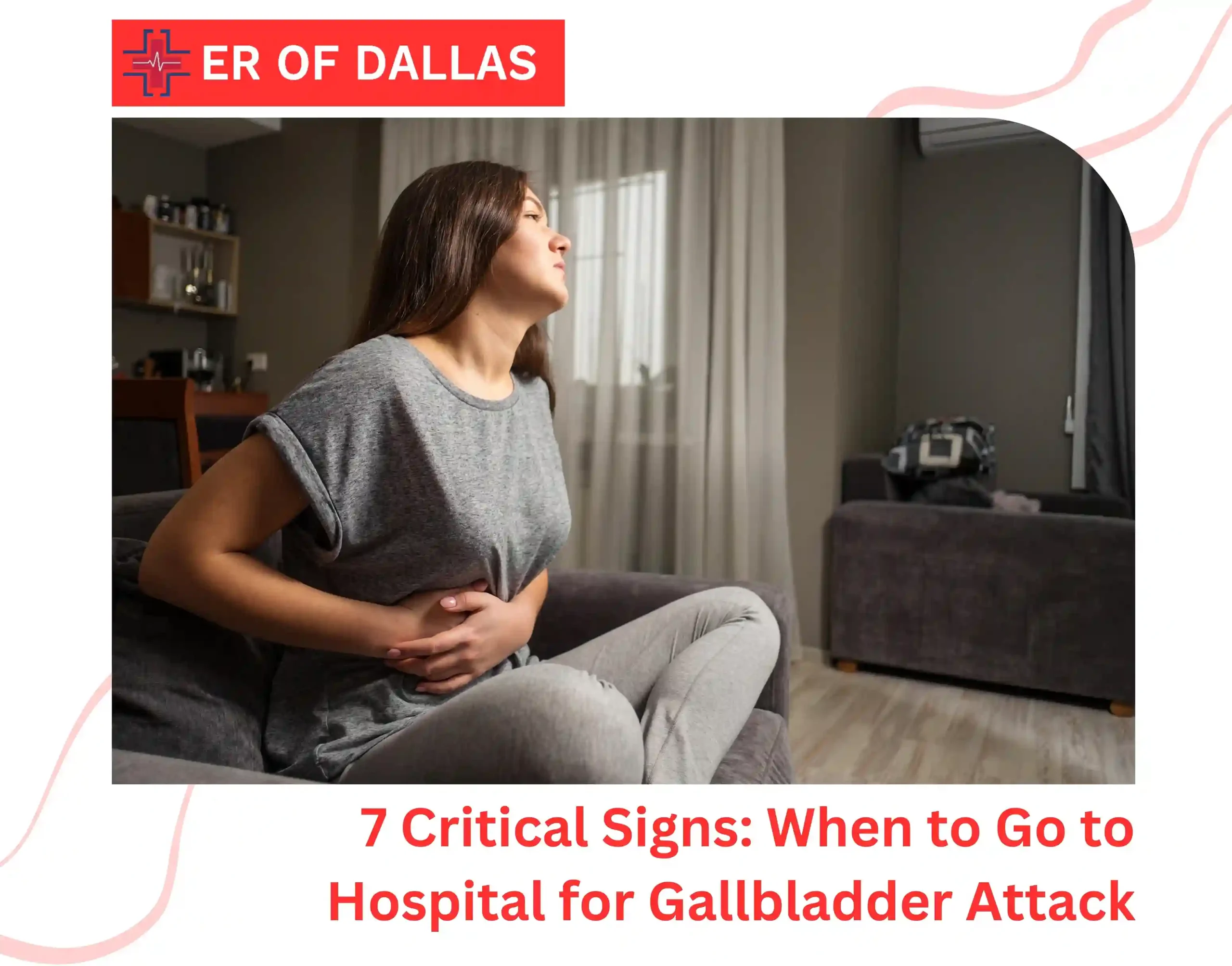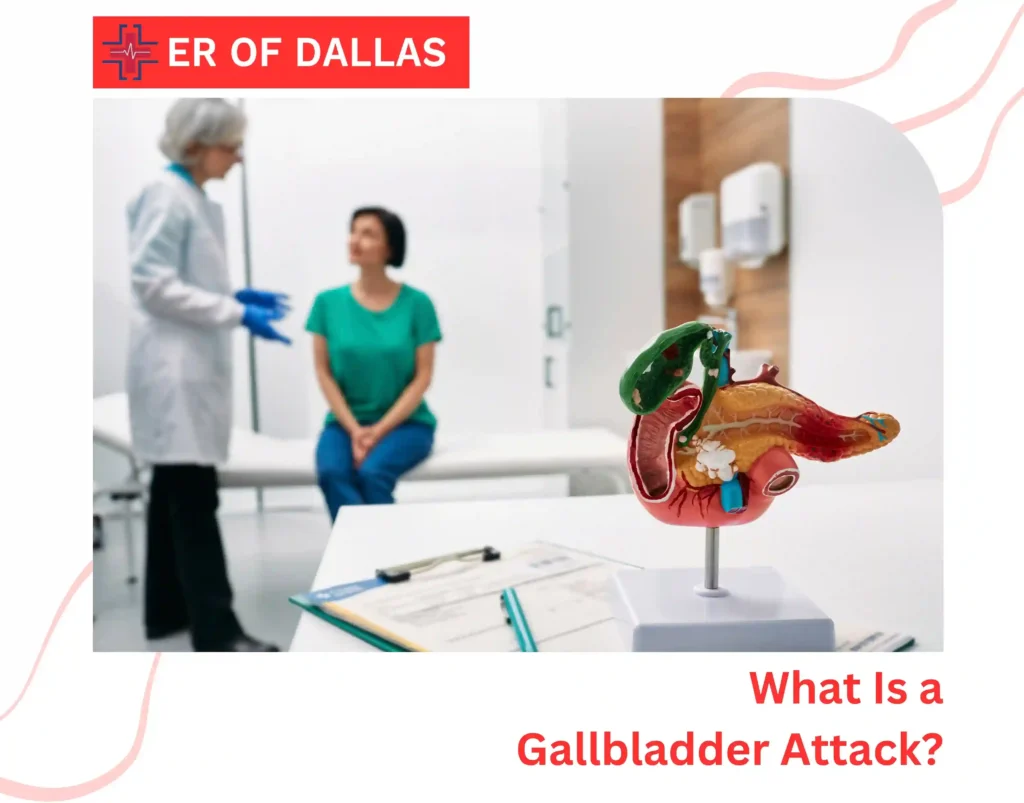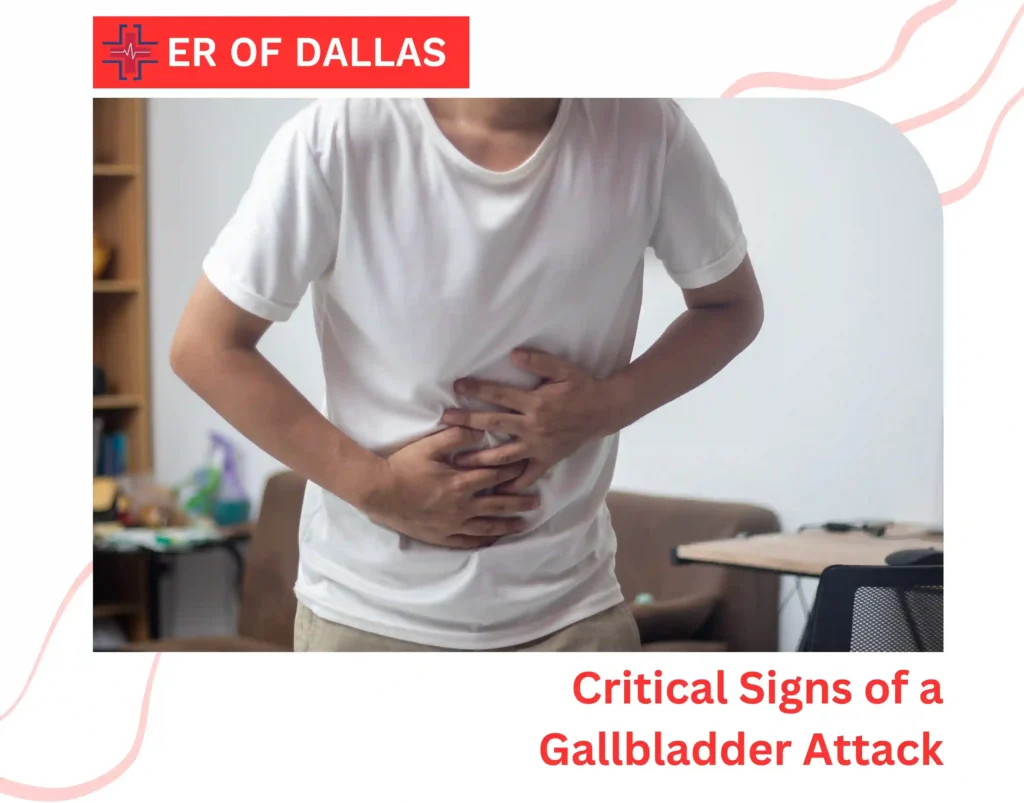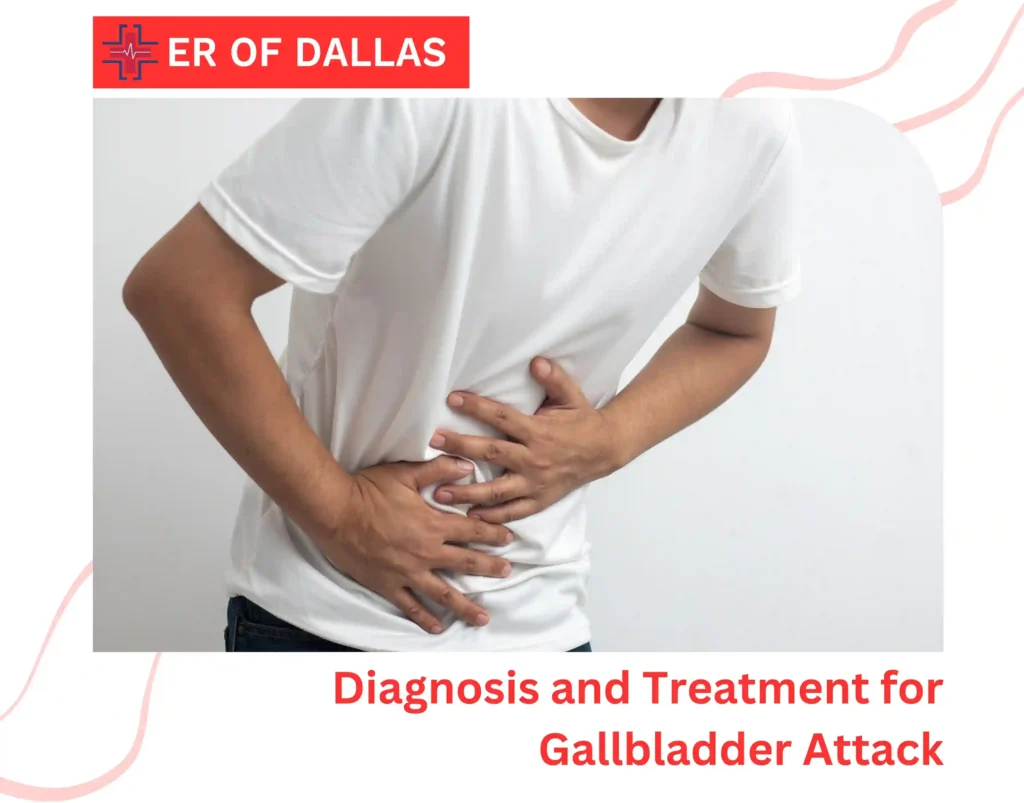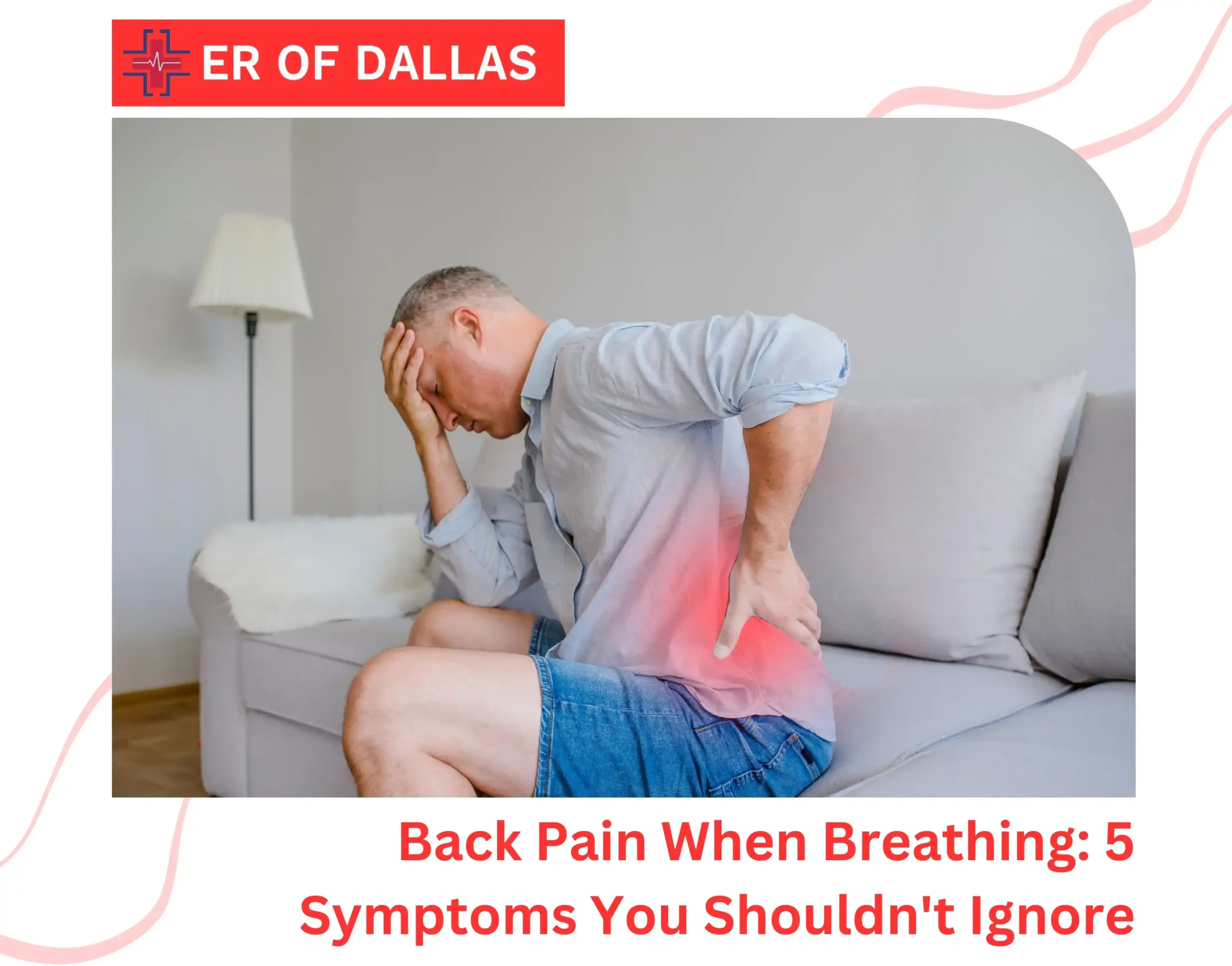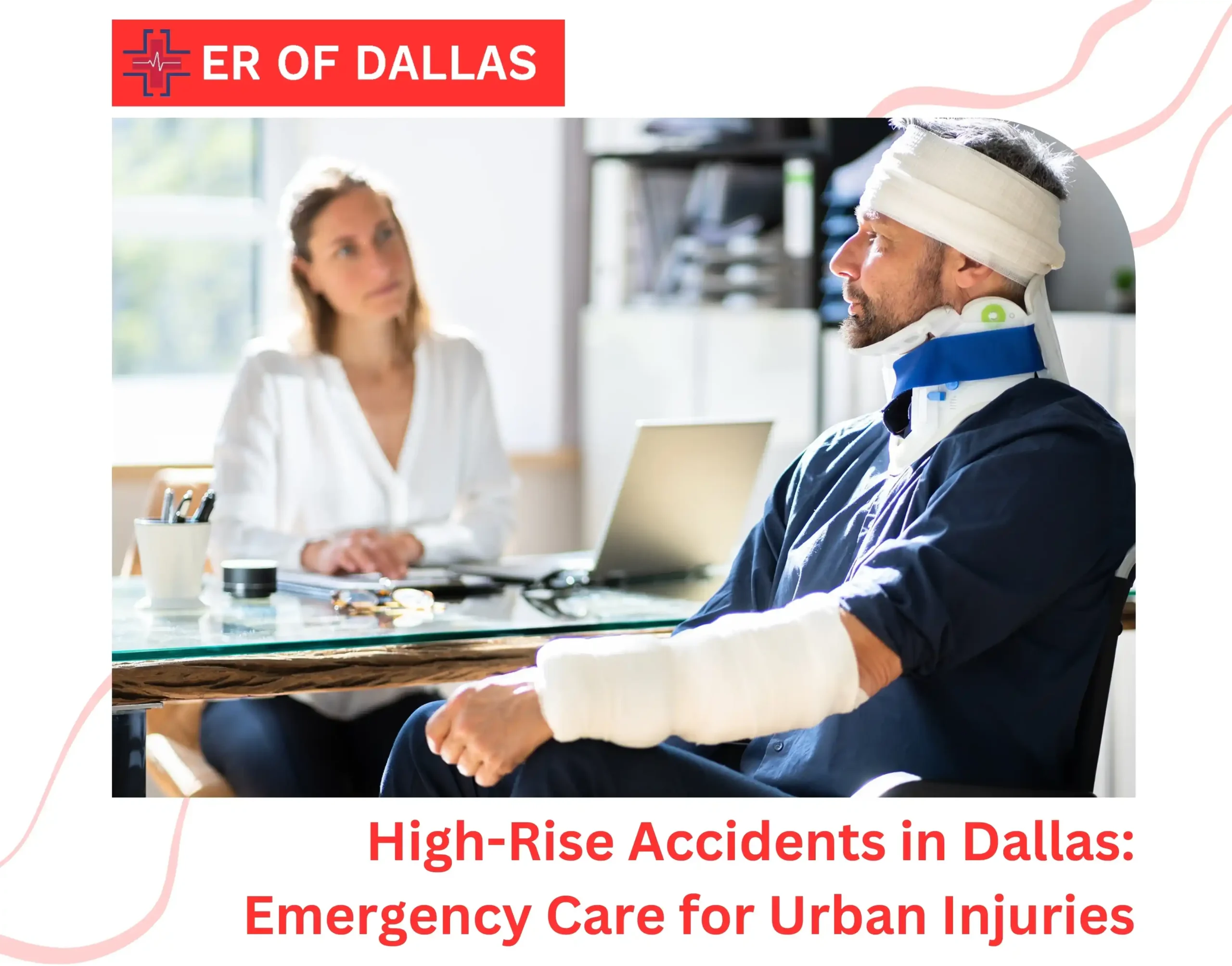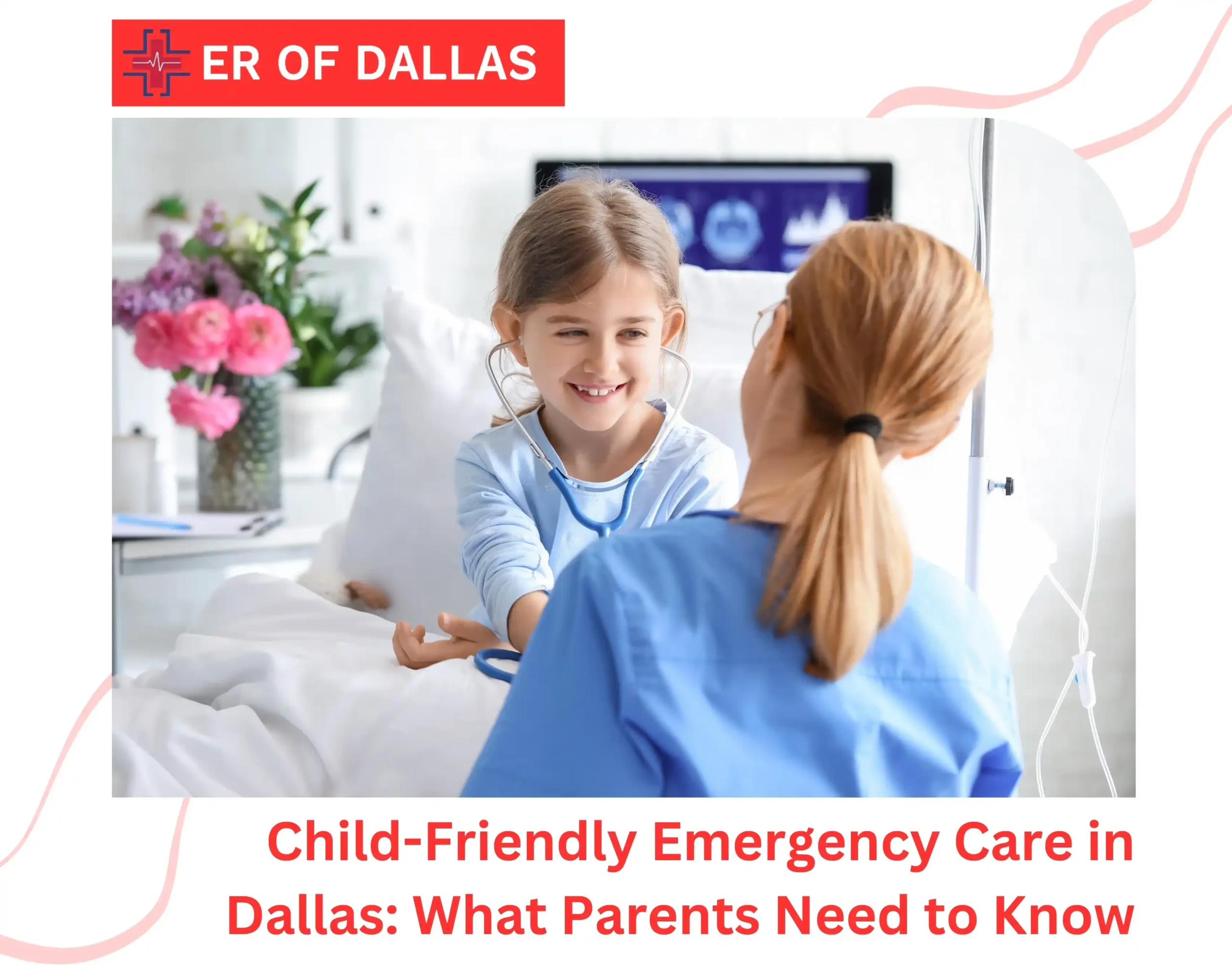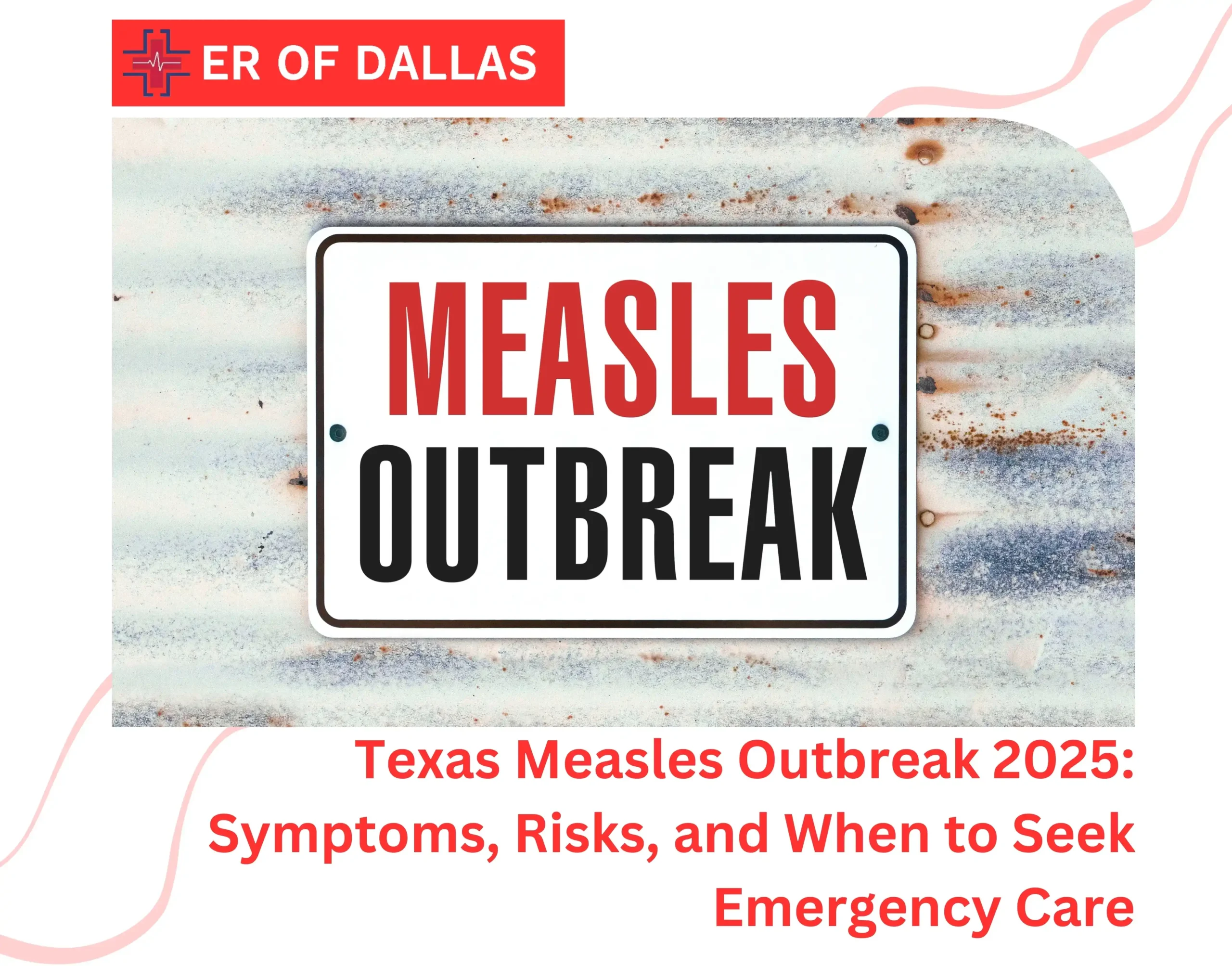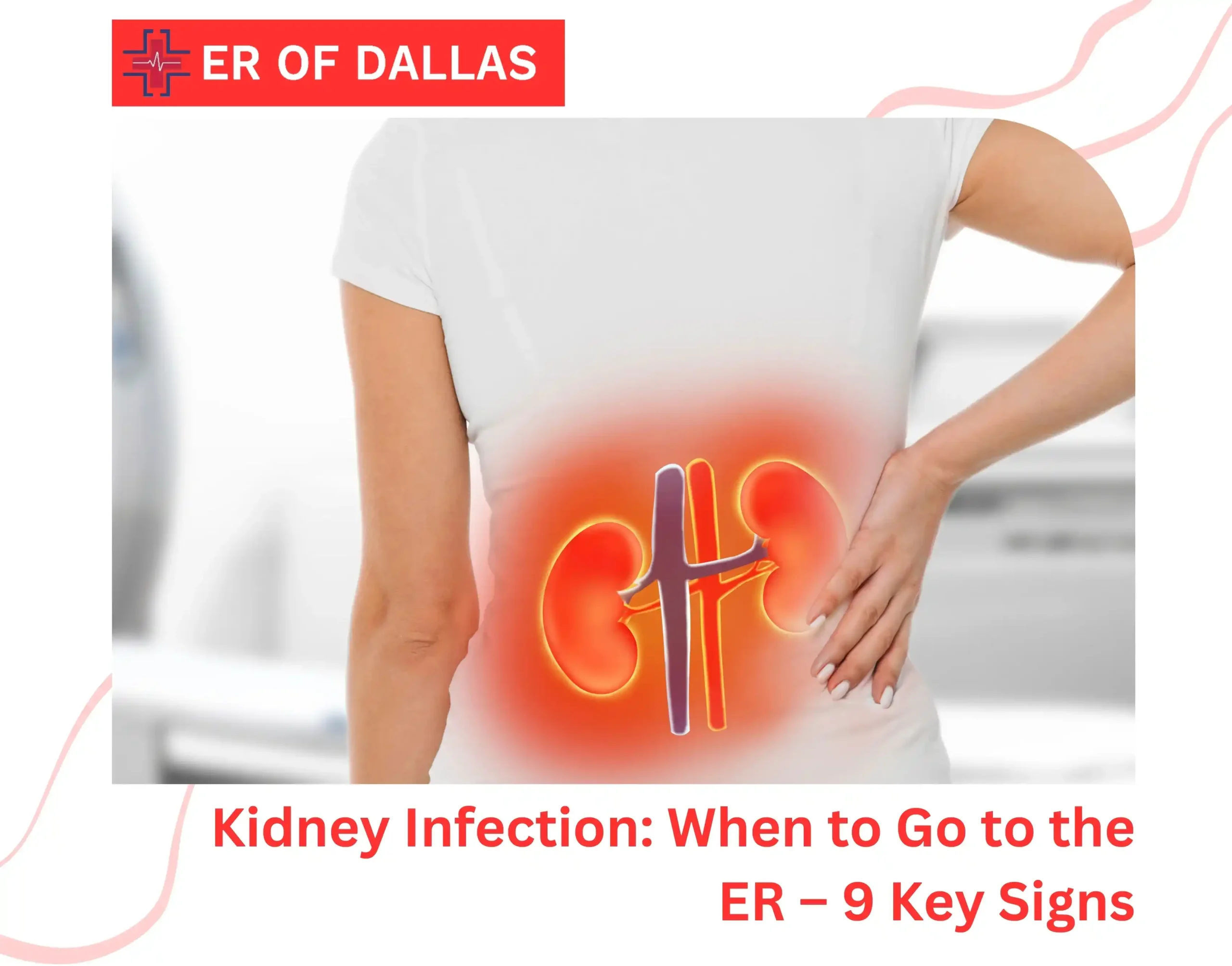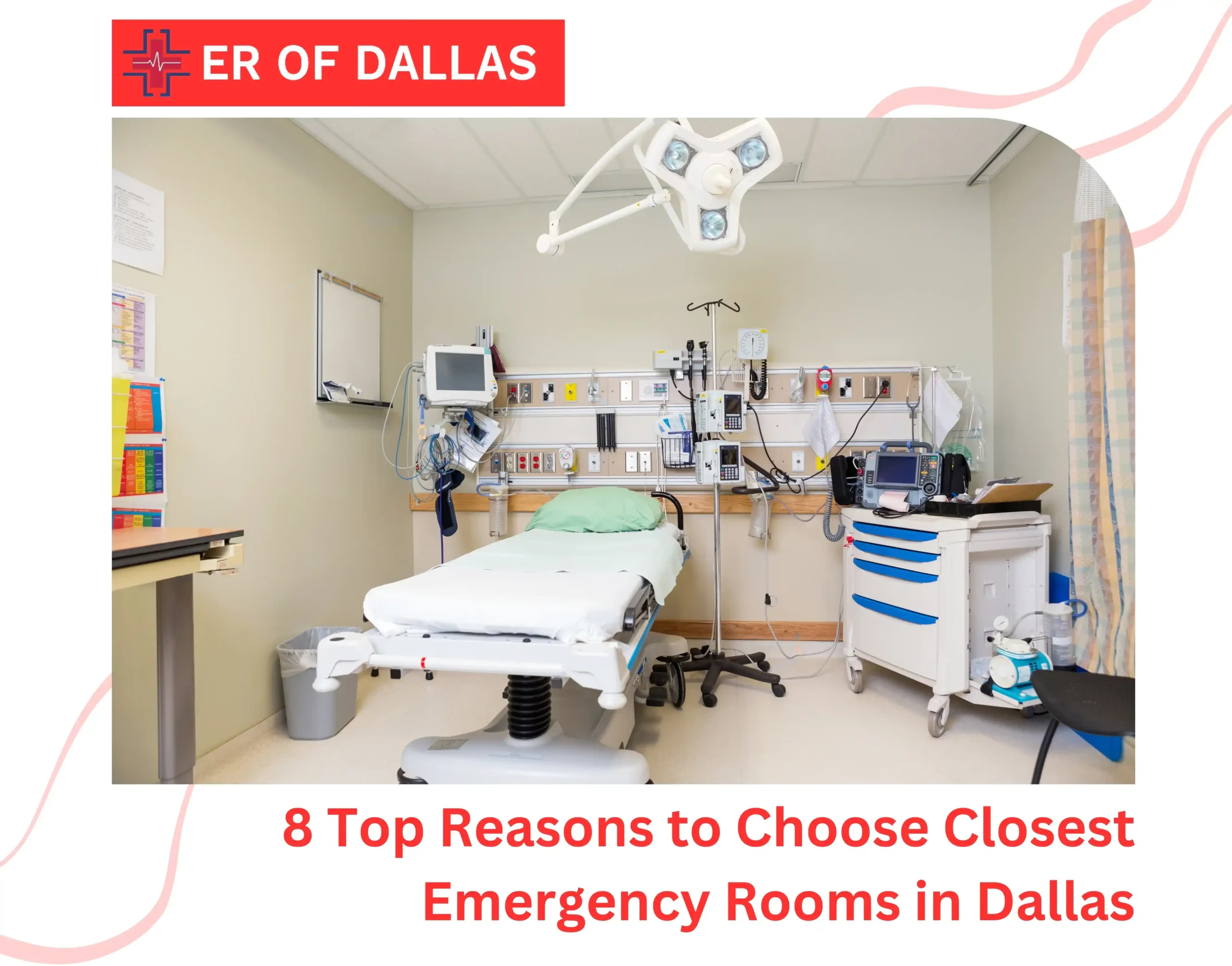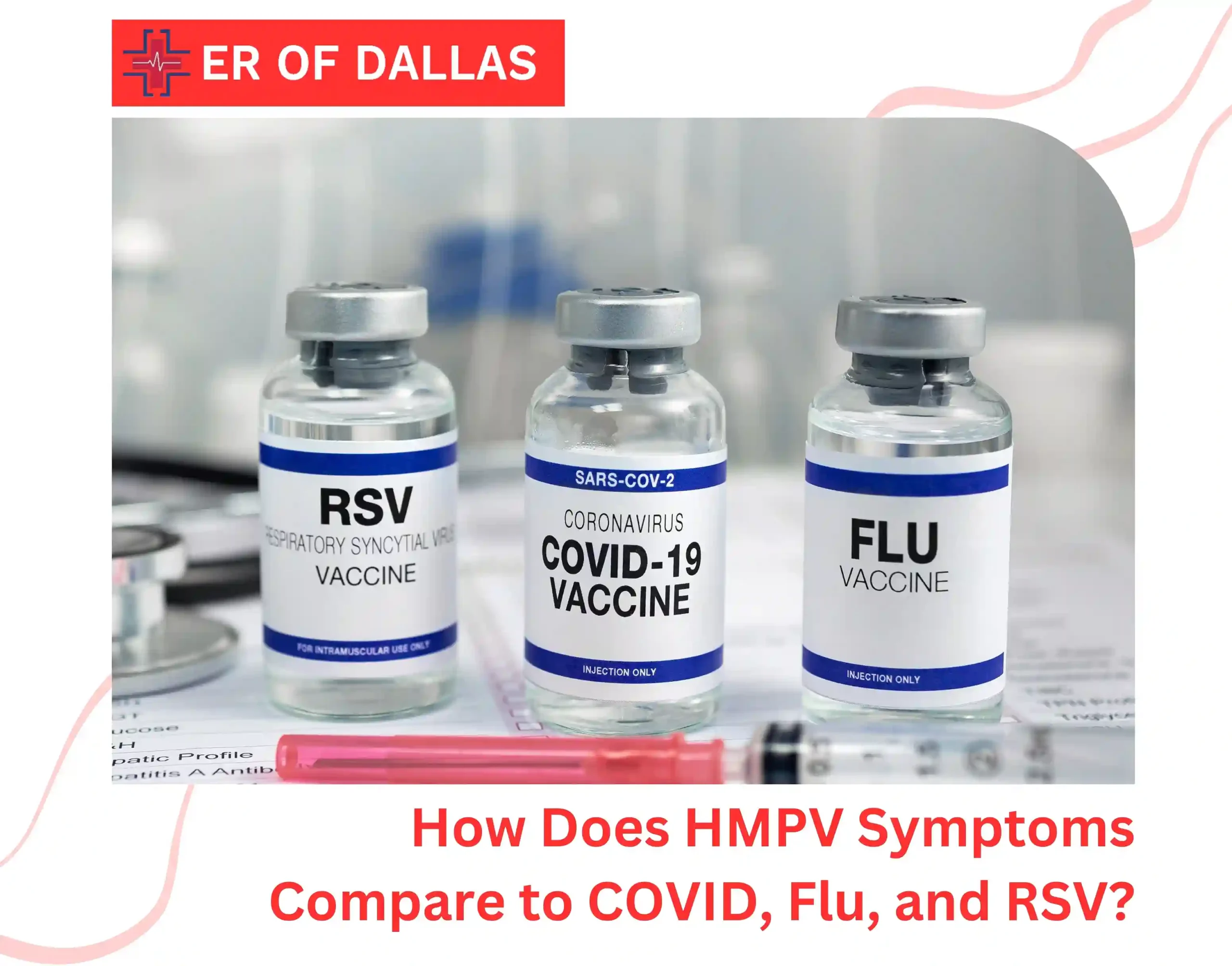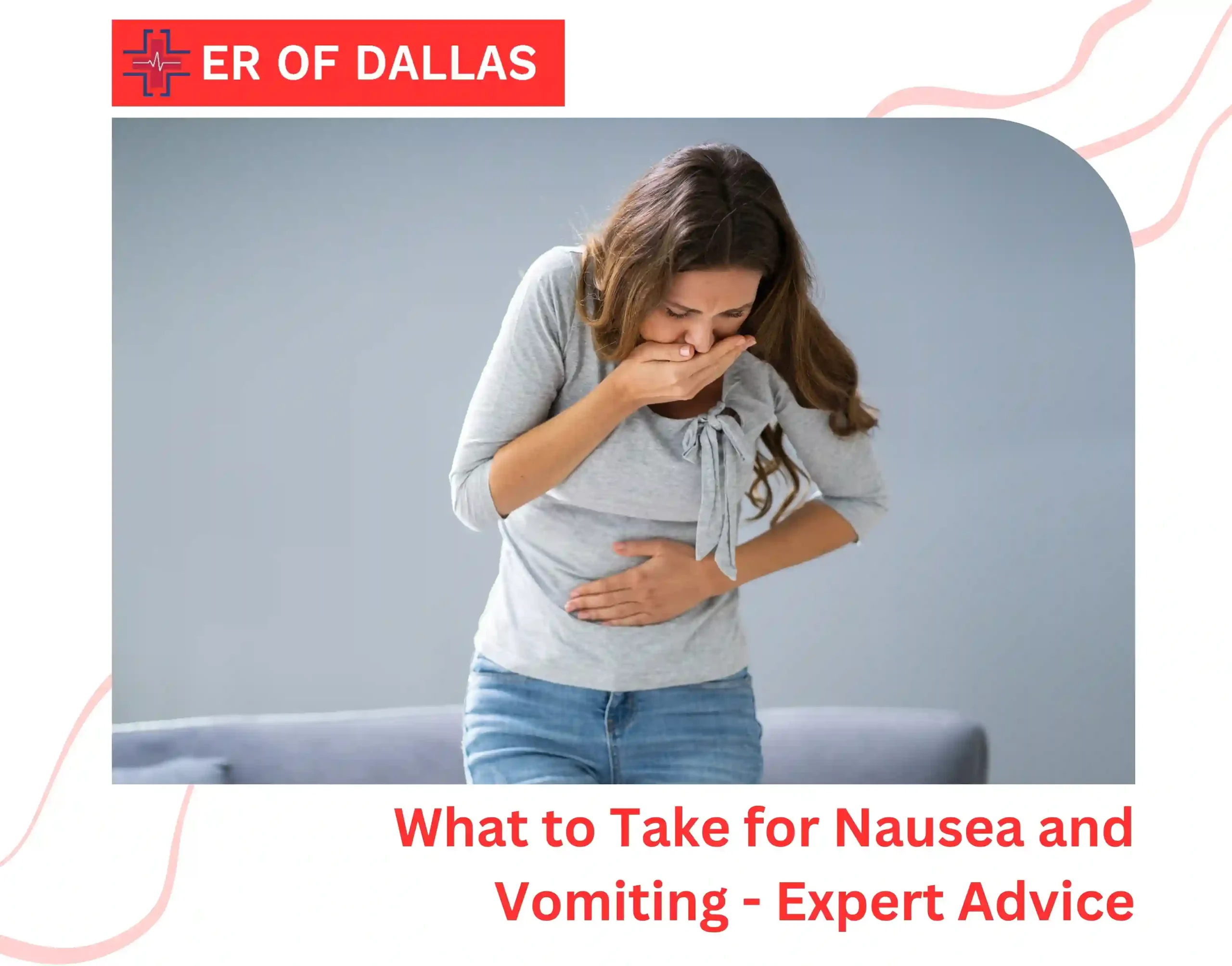Knowing when to go to hospital for gallbladder attack isn’t always straightforward, especially when your symptoms mimic other digestive issues.
From sudden, intense pain in your upper abdomen to less obvious signs like fever and rapid heartbeat, recognizing these critical signs helps you get timely emergency care.
Our Dallas ER is equipped with advanced diagnostic tools, including ultrasound, X-rays, surgical, and non-surgical procedures to treat gallbladder attacks before they lead to serious complications.
What Is a Gallbladder Attack?
A gallbladder attack is more than just digestive discomfort. It occurs when gallstones block the normal flow of bile from your gallbladder – a small organ beneath your liver that stores digestive fluid. This blockage can lead to severe abdominal pain and other symptoms that might require immediate medical attention.
What Causes a Gallbladder Attack?
Several factors can trigger a gallbladder attack, ranging from gallstones and infections to lifestyle choices. Understanding what causes a gallbladder attack helps you recognize your risks and know when to seek emergency care:
- Gallstones: Hard deposits in the gallbladder can block the bile duct, causing sudden pain and inflammation. While they are the most common cause, they aren’t the only culprit.
- Inflammation & Infection: Also known as cholecystitis, it occurs when your gallbladder gets inflamed from infections.
- Bile Duct Obstruction: Tumors, scarring, or other issues can block your bile ducts, leading to sudden attacks. These blockages often need urgent medical intervention.
- Dietary Choices: High-fat meals can trigger attacks, especially if you already have gallbladder issues. Certain diets and eating patterns increase your risk of developing problems.
Don’t wait for your gallbladder attack symptoms to become severe. If you experience recurring pain, visit the Emergency Room in Dallas immediately for comprehensive diagnosis and treatment.
Critical Signs of a Gallbladder Attack
Recognizing the symptoms early can make all the difference. Here are seven critical signs that signal when to go to hospital for gallbladder attack:
1. Severe Abdominal Pain
Pain in the upper right abdomen is the most common sign of a gallbladder attack. This pain may radiate to your back or shoulder blades and often worsens after eating fatty meals.
2. Nausea and Vomiting
Persistent nausea and vomiting can accompany the abdominal pain, signaling a potential gallbladder attack.
3. Fever and Chills
Developing fever and chills could indicate an infection that needs urgent treatment.
4. Jaundice
Yellowing of the skin or eyes suggests that bile is not flowing properly through your system, possibly due to gallstones.
5. Changes in Stool and Urine Color
Clay-colored stools or unusually dark urine are signs of bile obstruction, needing prompt attention.
6. Bloating and Indigestion
While mild bloating is common, chronic or persistent digestive issues might signal a gallbladder emergency.
7. Rapid Heartbeat
An elevated heart rate, especially with other symptoms, may indicate a severe gallbladder issue.
Don’t wait for multiple signs to appear. If you notice any of these signs, visit the Emergency Room in Dallas for prompt care and accurate diagnosis.
Why Immediate Care is Crucial
A gallbladder attack can quickly escalate into a medical emergency. A simple blockage can lead to severe complications, such as:
- Gallbladder Rupture: The gallbladder can actually burst if inflammation becomes severe, creating a life-threatening emergency that requires immediate surgery.
- Peritonitis: Untreated gallbladder problems can cause peritonitis, which is a dangerous inflammation of the abdominal lining that can spread throughout your body.
- Permanent Damage: Delaying care may lead to chronic gallbladder damage, making emergency surgery your only option rather than more conservative treatments.
Don’t risk these serious complications. Recognize when to go to hospital for gallbladder attack and seek emergency care for gallbladder attacks.
Diagnosis and Treatment for Gallbladder Attack
When you arrive at the emergency room for gallbladder attack, our expert team begins with rapid evaluation using advanced diagnostic tools to help identify the root cause of your symptoms. Common procedures include:
- Ultrasound: To detect gallstones or inflammation
- Blood Tests: To check for infection and liver function
- CT Scan: For detailed views of your gallbladder and surrounding organs
- MRI: For complex cases requiring detailed bile duct imaging
Treatment Options
Treatment depends on the severity and cause of the attack:
- IV Medications: To manage pain and swelling
- Antibiotics: If infection is present
- Non-Surgical Procedures: Such as endoscopic retrograde cholangiopancreatography (ERCP) to remove gallstones
- Surgery: In severe cases, gallbladder removal (cholecystectomy) may be necessary
Our expert team provides round-the-clock care for all gallbladder-related emergencies when time matters most.
Preventing Gallbladder Attacks
While some risk factors are unavoidable, lifestyle changes can help reduce the risk of a gallbladder attack:
- Choose a healthy diet rich in fiber and lean proteins
- Avoid fatty and processed foods
- Maintain a healthy weight
- Avoid skipping meals
- Stay hydrated
Regular check-ups can also help identify potential issues before they escalate. If you’re in Dallas, our team is ready to provide guidance and preventive care.
Conclusion
Identifying a true gallbladder emergency requires awareness and quick decision-making. Whether you’re experiencing your first attack or have a history of gallbladder issues, knowing when to go to hospital for gallbladder attack can prevent dangerous complications.
Never hesitate when symptoms suggest a gallbladder emergency. Our ER facility in Dallas offers advanced diagnostic tools and immediate treatment options, including emergency surgery if needed. We’re equipped to handle severe gallbladder attacks 24/7, ensuring you receive expert care precisely when you need it.
Call Now for Gallbladder Pain Relief
FAQs
1. How long does a gallbladder attack last?
A gallbladder attack can last anywhere from 15 minutes to several hours. If symptoms persist or worsen, seek immediate care at the Emergency Room in Dallas.
2. Can you treat a gallbladder attack at home?
Mild cases may improve with rest and dietary changes, but severe symptoms require professional medical attention. We recommend visiting a healthcare provider to avoid complications.
3. What happens if a gallbladder attack is left untreated?
Untreated attacks can lead to severe complications such as gallbladder rupture, infections, or chronic inflammation. It’s essential to know when to go to hospital for gallbladder attack to prevent these outcomes.
4. Is gallbladder removal the only solution?
Not always. While surgery is a common treatment for severe cases, other options like medications or non-invasive procedures may be effective depending on the condition.
5. Are gallbladder attacks hereditary?
Family history can increase your risk, but lifestyle factors also play a significant role. Discuss your risk with our specialists at the Emergency Room in Dallas.

